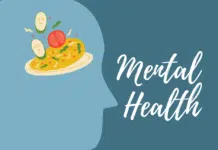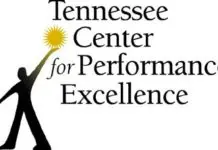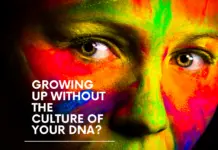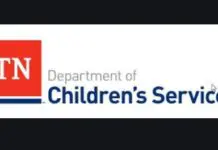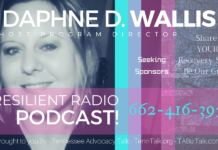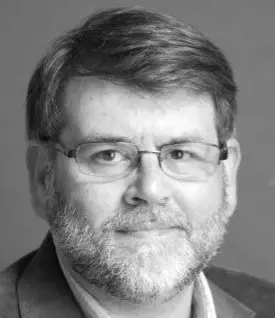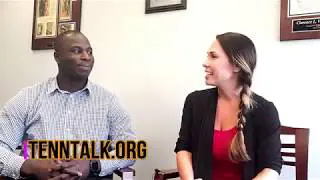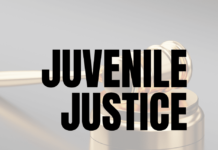
“June,2018, Five Tennessee Health Care Executives Charged In $2.5 Million Dollar Kickback Scheme.”
“October 2018, Tennessee, Seven companies and four men are facing charges, accused of roles in a $1 billion telemedicine fraud scheme that deceived tens of thousands of patients and more than 100 doctors.”
“In 2017, the DOJ and HHS joint Medicare Fraud Strike Force filed 253 indictments and charges against 478 defendants who allegedly billed federal healthcare programs more than $2.3 billion.”
“..fraud steals $80 billion a year across all lines of insurance.”
Most of these cases went on for a long time before they were even noticed. How was someone able to steal billions of dollars without a red flag and why was a system to identify unusual behavior or physical checks and balances not enacted sooner……lets say at the $100k mark instead of the 1 million dollar mark?
Who is really responsible for the repercussions of fraud costs? Should fraud cost be put back on the consumer who did not commit the fraud or should companies really be penalized by denials for lengths of stay or treatment if they are not the ones who committed or create the oversight for the fraud?
To put it in perspective…” The height of a stack of 1,000,000,000 (one billion) one-dollar bills measures 358,510 feet or 67.9 miles. This would reach from the earth’s surface into the lower portion of the troposphere – one of the major outer layers of earth’s atmosphere!
Right now, treatment facilities are not able to obtain the length of stay required for patients to receive the appropriate quality of care, insurance companies limit their reimbursements and benefits, insurance is not affordable to a lot of people……there should be more talk on the responsibility and actions to deter and prevent insurance fraud. In my opinion, insurance fraud is the root cause and barrier to a lot of problems we face today in the patient treatment world.
In this article, I want to talk not so much about the insurance company’s solutions to fraud gaps, but the actual cause for fraud itself in hopes you can be proactive and take snippets of this info to insert into your own business, “Fraud Determent and Prevention Models,”….hopefully you have one.
What exactly causes fraud? There is a formula to it….
From the crisis in the financial markets, the Sarbanes Oxley Act, made a huge impact using fraud detection mechanisms initially theorized by Dr. Donald Cressey which this tool is called the “Fraud Triangle.” It is really simple to understand and I feel strongly we need it applied more in our insurance fraud determent and prevention systems.
Fraud Triangle
For fraud to occur, there are three main elements and if any one element is present, or worse, all of them, fraud is more likely to occur. Those three elements are Pressure, Rationalization, and Opportunity. On the flip side, having any one element not present, or hopefully, all of them not present, prevents fraud. Let’s break it down.
Pressure: Stress or Strain that could not be shared with others.
This includes financial or non-financial pressure which could be work related, drugs, gambling, or the need to keep up with a perspective of wealth, influence, or stature among the public eye.
What ways do you see as possible causes of pressure in the cited insurance fraud cases above that could possibly apply?
Rationalization: Action of attempting to explain or justify behavior or an attitude with logical reasons, even if not appropriate.
People have rationalized a crime before it happened and proceeded through justification. This is when an individual shifts ethical fault. They blame other things or people and it is out of their control.
For example,” I am underpaid for all the hard work I do, therefore, I deserve more money than what they are paying me, I am going to steal from them.” Another is, “Everyone does it, so I am going to do it,” and unfortunately,” I will borrow the funds and put them back, because I am borrowing and not really stealing, it is not wrong to take if I put it back,” ……but the funds are never put back.
With the insurance fraud cases above, could you imagine what those people rationalized?
And the BIGGEST one, Opportunity! Defined as a set of circumstances that makes it possible to do something.
This is the BIGGEST importance because fraud CANNOT HAPPEN at all without opportunity, no matter how intense the pressure or rationalization is.
Having knowledge, the skill, and the perception of no fear to commit a crime is also classified as an opportunity. What if no one is watching or what if you are the only one who knows the schedules of people entering in and out of a building?
The insurance fraud cases above particularly with thinking about how some cases went on for years and billions of dollars later, do you think they would have had opportunity to commit and continue those crimes for so long if opportunity did not allow it?
Are you short staffed? Do you have a double check system in place? How ethical are your leaders? And most importantly, how strong are your “Fraud Determent and Prevention Models?”
Till Next Time,
Mel K
*Through Tennessee Advocacy Talk, we conduct performance improvement assessments and strategies for companies. Contact us for a complimentary consult or to schedule a training.
U.S. Department of Health and Human Services. (2018, April 06). Health and Human Services and the Department of Justice Return $2.6 Billion in Taxpayer Savings from Efforts to Fight Healthcare Fraud. Retrieved from https://www.hhs.gov/about/news/2018/04/06/hhs-and-department-justice-return-26-billion-taxpayer-savings-efforts-fight-healthcare-fraud.html
Quigley, J. (n.d.). By the numbers. Retrieved from https://www.insurancefraud.org/statistics.htm
Five Tennessee Health Care Executives Charged In $2.5 Million Dollar Kickback Scheme. (2018, June 28). Retrieved from https://www.justice.gov/usao-mdtn/pr/five-tennessee-health-care-executives-charged-25-million-dollar-kickback-scheme
Two Tennessee Health Care Executives Charged for Role in $4.6 Million Medicare Kickback Scheme. (2018, April 11). Retrieved from https://www.justice.gov/opa/pr/two-tennessee-health-care-executives-charged-role-46-million-medicare-kickback-scheme
(n.d.). Retrieved from http://www.acfe.com.com/fraud-triangle.aspx
(n.d.). Retrieved from http://www.ehd.org/science_technology_largenumbers.php
Insurance Fraud. (2010, March 17). Retrieved from https://www.fbi.gov/stats-services/publications/insurance-fraud
Dennis jay, jim quiggle, howard goldblatt, kendra smith, jennifer tchinnosian. (n.d.). Insurance Fraud NEWS. Retrieved from https://www.insurancefraud.org/IFNS-detail.htm?key=29659
Akers, R. L., & Matsueda, R. L. (2007, January 09). Donald R. Cressey: An Intellectual Portrait of a Criminologist. Retrieved from https://onlinelibrary.wiley.com/doi/pdf/10.1111/j.1475-682X.1989.tb00118.x

